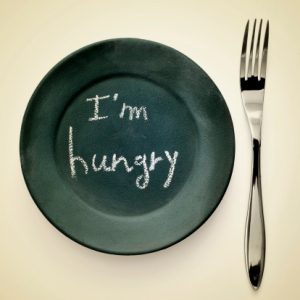
Polyphagia is a condition characterized by excessive hunger and an increase in appetite. No matter how much you consume the feeling of hunger seems to always be present.
Think about the last time you were hungry. It might have been after intense exercise, or maybe you had skipped a meal. You might have eaten more to quell those hunger pains, but eventually you likely felt full. But if you’re always hungry, and can’t seem to get full, you could be showing a sign of diabetes.
Three main symptoms of diabetes
There are three main symptoms to look out for with diabetes; they include polyphagia, polydipsia and polyuria.
Polyphagia: Increased hunger.
Polydipsia: Increased thirst.
Polyuria: Increased urination.
Causes and symptoms of polyphagia
There are many causes of polyphagia which include:
- Diabetes
- Hypoglycemia (low blood sugar)
- Hyperglycemia (high blood sugar)
- Anxiety
- Stress
- Depression
- Bulimia
- Binge eating disorder
- Hyperthyroidism (overactive thyroid)
- Premenstrual symptom
- Prescription medication
- Psychiatric conditions.
As mentioned, the main symptom of polyphagia is excessive hunger. This hunger does not go away and you may find you are overeating.
Polyphagia and diabetes
To combat polyphagia in people with diabetes, a patient may seek help from their doctor and dietician. Because there is the risk of overeating and thus gaining weight – which is bad for diabetics – a dietician can put these patients on meal plans that cut calories and balance out meals to ensure proper nutrition. Essentially a diabetic patient with polyphagia will eat many small meals throughout their day. This can help the symptoms of polyphagia subside and prevent future episodes.
Using insulin, as well, can help with polyphagia. This, of course, must be done under the watchful eye of a doctor – each diabetes case is different and so the use of insulin is up to the judgment of your doctor.
If you’re concerned that you are constantly hungry and therefore are overeating, speak with your doctor, especially if diabetes runs in your family. Although the cause of polyphagia can vary, the link between diabetes and polyphagia is clear.
Related Reading:
Older Americans have poor control over diabetes
Current research reports that only one in every three American seniors have their diabetes under control, according to John Hopkins University Bloomberg School of Public Health. In 2012, of the 11.8-million American seniors in the U.S., 25.9% had diabetes. The numbers continue to increase annually. Seniors in this case are over the age of 65. Continue reading…
Your risk of diabetes increases if you have this
Does your partner ever nudge you in the middle of the night due to your snoring? You may take it as a sign of being in a deep sleep, but snoring can also be a symptom to a serious sleep condition. Continue reading…
Sources:
http://www.diabetes.co.uk/symptoms/polyphagia.html
http://www.diabeteswellbeing.com/polyphagia/
http://www.wisegeek.com/what-is-the-connection-between-polyphagia-and-diabetes.htm#didyouknowout
http://www.diabetes.co.uk/The-big-three-diabetes-signs-and-symptoms.html